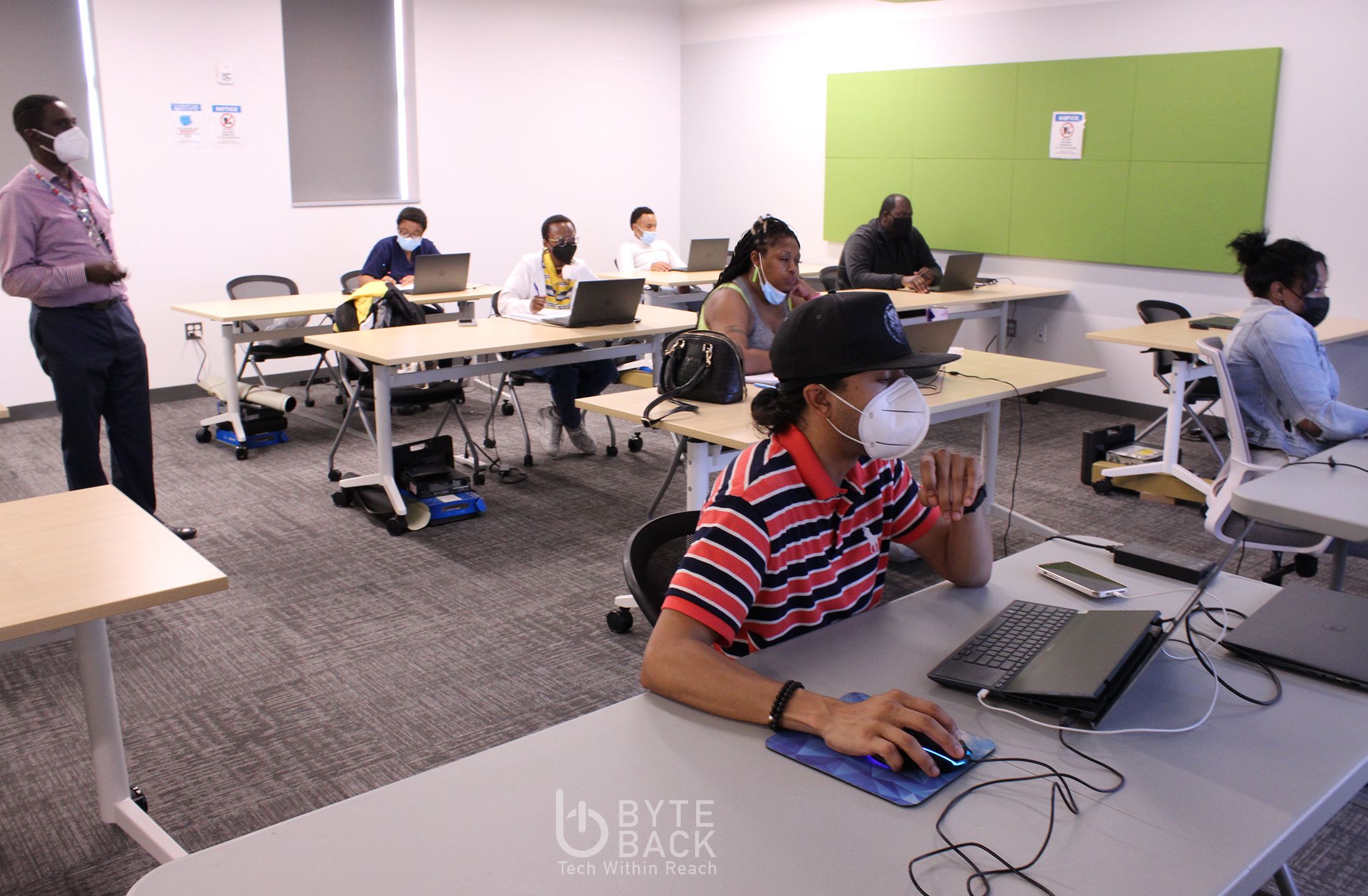
Related Stories
Digital Equity Champions for All Learners: Byte Back Fights Back the Digital Skills Gap
Byte Back, a nonprofit organization founded in 1997 by civil rights activists who recognized the importance of technology in uplifting and empowering communities, provides adult learners furthest from opportunities with a pathway into the digital economy and society. In several cities, Byte Back accomplishes this mission through offering no-cost technology training and certification, as well as advocacy for no- and low-cost broadband access.
Byte Back primarily serves adult learners from low-income backgrounds, including through special programming for veterans, formerly incarcerated learners, women, and refugees. Over 90 percent of participants are persons of color, and 66 percent are women. The majority are unemployed, and more than 80 percent do not have a college degree. Chrissie Powell, the organization’s chief growth and impact officer says, “Everyone needs to know how to use a computer to be able to successfully thrive in life.”
Byte Back meets participants where they are, helping them build foundational digital skills and accomplish technology-integrated tasks and offering programming in English and Spanish . Powell shared that the organization serves participants who may require support in the “basics of how to turn on a computer, use a mouse, safely navigate the internet, set up [an] email address, attach a file to an email, [and] manag[e] files” to “telemedicine and online banking.” Additionally, Byte Back scales impact through community partnerships to offer programs in locations where participants already regularly convene. Powell added, “We host trainings…in partnership with others [such as] workforce development organizations, adult basic education organizations, [and] libraries.”
Since its founding, Byte Back has made a substantial impact with over 90 percent of participants expressing increased comfort with navigating a computer. After graduating from Byte Back’s programs, participants are obtaining jobs and increasing their earnings. According to the organization’s 2020 report, employed graduates’ annual earnings increased by over $20,000 on average.
As the organization grows into additional cities and prepares to launch a virtual training option open to anyone in the country, Byte Back is examining the impact of emerging technologies, such as artificial intelligence (AI), and how its programming can adapt to help underserved communities navigate their impact. Mikael LaRoche, head of brand, marketing, and communications explained, “[Byte Back will] start exploring…what that space is going to look like,” especially since AI will significantly change the job market.
Laroche and Powell shared the following advice for digital equity leaders:
- Invest in developing partnerships across multiple organizations and sectors, especially at the grassroots level.
- Collaborate with coalitions at the local, state, or national level to take a holistic approach to closing the digital divide.
- Consider the community’s needs outside of technology access – such as transportation or childcare – that bar them from taking advantage of digital skill-building opportunities and meet them where they are already gathering.
- Adapt to the evolving needs of the community.
- Work with community-based organizations, internet service providers, philanthropies, and local and state policymakers to ensure sustainability.


